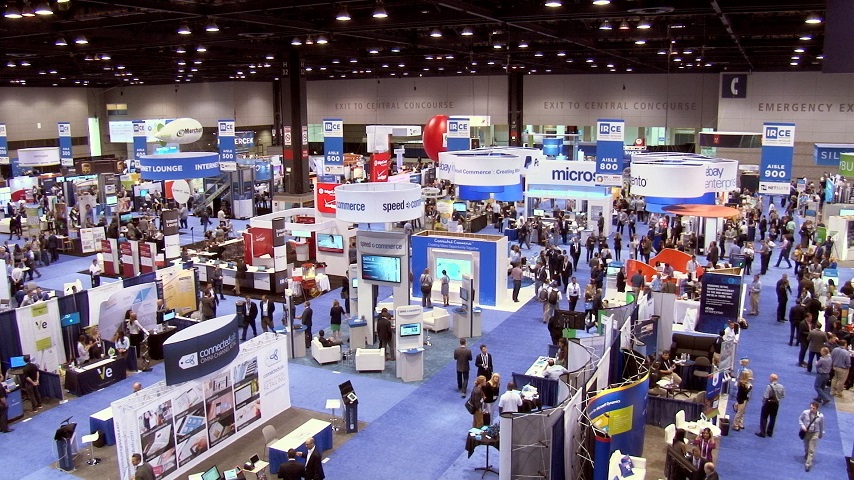In today’s competitive event landscape, a robust event marketing strategy is essential to stand out, engage your target audience, and achieve your goals. Whether you’re organizing a small seminar or a large-scale conference, your marketing approach can significantly influence your event’s success. This guide will break down the key components of an effective event marketing strategy, offering actionable insights to help you maximize impact.
1. Define Your Event Goals and Objectives
Every successful marketing strategy starts with clear goals. Before diving into tactics, identify what you aim to achieve. Common event goals include:
- Increasing attendance: Attracting a specific number of participants.
- Generating leads: Capturing interest from potential customers.
- Boosting brand awareness: Establishing your organization as a leader in the industry.
- Driving revenue: Monetizing ticket sales, sponsorships, or product launches.
Once you’ve set your objectives, ensure they follow the SMART criteria (Specific, Measurable, Achievable, Relevant, and Time-bound).
2. Understand Your Target Audience
Audience insights are crucial for tailoring your strategy. Analyze your potential attendees by considering:
- Demographics: Age, gender, location, job roles, and income.
- Psychographics: Interests, motivations, and preferences.
- Behavioral data: Past attendance, online interactions, and buying habits.
Use audience segmentation to create personalized marketing campaigns. For example, corporate executives may prefer LinkedIn promotions, while younger professionals might respond better to Instagram ads.
3. Develop a Compelling Event Value Proposition (EVP)
Why should people attend your event? Your EVP answers this critical question. It should highlight:
- Unique offerings: Exclusive content, expert speakers, or hands-on workshops.
- Benefits: Networking opportunities, skill enhancement, or product previews.
- Solutions: How your event addresses their pain points or aspirations.
Communicate your EVP consistently across all marketing channels to build excitement and trust.
4. Choose the Right Marketing Channels
Selecting appropriate platforms ensures your message reaches the right audience. Here’s a breakdown of key channels:
Email Marketing
- Build a segmented email list based on interests or past behavior.
- Send out newsletters, invitations, and reminders.
- Use attention-grabbing subject lines and clear calls-to-action (CTAs).
Social Media Marketing
- Promote with event hashtags and countdown posts.
- Share behind-the-scenes content and live updates.
- Leverage platform-specific features like Instagram Stories or LinkedIn articles.
Content Marketing
- Create blogs, videos, or infographics to educate and engage.
- Share speaker interviews or topic previews.
- Optimize for SEO to attract organic traffic.
Paid Advertising
- Use Google Ads for targeted keyword campaigns.
- Invest in social media ads for increased visibility.
- Track performance metrics like click-through rates and conversions.
5. Craft an Event Website or Landing Page
Your event website serves as the digital hub for all information. It should include:
- Essential details: Date, time, location, and agenda.
- Registration links: Easy-to-find buttons with a streamlined user experience.
- Social proof: Testimonials, past event photos, or video highlights.
- FAQs: Address common attendee questions.
Ensure your site is mobile-friendly and optimized for fast loading.
6. Engage Through Pre-Event Activities
Build momentum with interactive pre-event campaigns. Ideas include:
- Countdowns: Share daily posts leading up to the event.
- Sneak peeks: Reveal snippets of the agenda or speaker lineup.
- Contests: Offer discounted tickets or exclusive perks for winners.
7. Leverage Partnerships and Sponsorships
Collaborate with sponsors, exhibitors, or influencers to expand your reach. Strategies include:
- Cross-promotion: Ask partners to share event details with their networks.
- Co-branded campaigns: Design promotional materials highlighting all collaborators.
- Influencer marketing: Partner with industry leaders to endorse your event.
8. Harness the Power of Event Technology
Technology can streamline and amplify your efforts:
- Event apps: Enable real-time updates, attendee networking, and session schedules.
- AI tools: Personalize communication and predict attendee preferences.
- Analytics platforms: Measure campaign performance and attendee engagement.
9. Use Storytelling to Build Connection
People are drawn to narratives. Incorporate storytelling into your marketing to evoke emotions and foster connections. Highlight:
- Speaker journeys: Share why they’re passionate about their topics.
- Success stories: Feature testimonials from past attendees.
- Your vision: Explain how your event aligns with broader industry goals.
10. Implement a Multi-Phase Marketing Timeline
An effective strategy requires proper timing. Break your campaign into phases:
Early Bird (3-6 Months Before)
- Announce the event.
- Offer discounted early-bird tickets.
- Share teaser content.
Engagement Phase (1-3 Months Before)
- Ramp up social media activity.
- Launch paid ad campaigns.
- Highlight key sessions or attractions.
Last Call (Final Month)
- Use urgency-driven messaging (e.g., “Last chance to register!”).
- Share countdowns and reminders.
- Offer group discounts to drive bulk registrations.
11. Monitor and Optimize Your Campaigns
Track key performance indicators (KPIs) to evaluate success, such as:
- Website traffic and conversions.
- Social media engagement rates.
- Email open and click-through rates.
- Registration and attendance numbers.
Analyze the data to identify what’s working and adjust your strategy as needed.
12. Create a Memorable On-Site Experience
Your marketing doesn’t end once attendees arrive. Enhance their experience by:
- Branding the venue: Use banners, signage, and digital displays.
- Engaging activities: Offer live polling, interactive sessions, or gamification.
- Social sharing opportunities: Set up photo booths or hashtag walls.
13. Extend Your Strategy Post-Event
Keep the conversation alive after the event:
- Share event highlights and photos.
- Publish recordings of key sessions.
- Send thank-you emails with surveys to gather feedback.
Use the insights gathered to refine future campaigns.
Conclusion
A well-planned event marketing strategy can make the difference between a forgettable event and a truly impactful one. By understanding your audience, leveraging the right channels, and focusing on engagement throughout the event lifecycle, you can maximize your reach and achieve your goals.
Start implementing these strategies today and watch your events soar to new heights.



